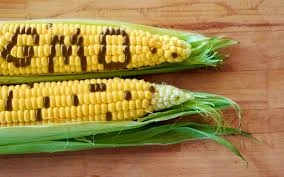Explore the controversies about GMO corn in Nigeria, including Tela maize and Bt corn, as we delve into their origins, yield potential, and the debate over their impact on food security and health

Genetically Modified Organisms (GMOs) have sparked intense discussions worldwide, and corn—often referred to as maize—is at the forefront of this debate. As the Nigerian Government approves the commercial planting of GMO corn varieties like Tela maize, Bt corn, questions arise about their impact on food security, health, and the environment.
In this blog, we discuss the origins of GMO corn, its yield potential, controversies, and expert perspectives. We will also weigh its promises against the hidden costs and implications for farmers, consumers, and the ecosystem.
Origins and Purpose of GMO Corn
Genetically Modified corn emerged from a collaborative effort to address critical agricultural challenges.
The project, “Water Efficient Maize for Africa (WEMA) was initiated to develop maize varieties that could withstand drought conditions, climate change effects, including prolonged dry spells that threaten maize production across Africa. WEMA aimed to create maize hybrids resilient to water scarcity while maintaining high yields.
Tela maize, a GMO corn variety, emerging from WEMA was genetically engineered to exhibit drought tolerance. Additionally, it was designed to resist the highly destructive Fall ArmyWorm (FAW) pest, which devastated corn fields in Nigeria and other African countries.
In 2021, the Nigerian National Biosafety Management Agency (NBMA) approved the environmental release and field trials of Tela maize varieties (SAMMAZ 72T, 73T, 74T, and 75T). These varieties underwent rigorous evaluation to ensure safety and effectiveness.
Yield Potential and Soil Health Concerns Associated with GMO Maize
Tela maize, under good agronomic practices, yield up to 10 tons per hectare, a substantial increase compared to the current national average of 2.2 tons per hectare. National trials conducted by Nigeria’s Institute for Agricultural Research across ten states demonstrated average yields of 3 tons per hectare, attributed to the crop's resistance to pests like the Fall Armyworm (FAW) and its drought tolerance.
However, concerns about soil health persist. The cultivation of Tela maize and other GMO corn like By corn can lead to increased dependency on specific fertilizers and agrochemicals, degrading soil health over time. Intensive use of chemical fertilizers can disrupt natural nutrient cycles and harm beneficial soil microorganisms, reducing soil fertility and organic matter content.
To mitigate these impacts, integrating sustainable agricultural practices such as crop rotation, organic fertilizers, and integrated pest management (IPM) is crucial. Ongoing research and monitoring are necessary to understand the long-term implications on soil health, ensuring that yield benefits do not compromise soil sustainability.
Side Effects or Dangers of GMO Corn Adoption in Nigeria
Despite the yield benefits of GMO corn varieties (Tela maize, Bt corn), its adoption has been met with significant controversy and concerns over potential side effects and dangers. Critics have raised various health, environmental, and socio-economic issues that warrant careful consideration.
Health Concerns
One of the main health concerns associated with GMO corn is the potential increase in allergens and toxins. Genetic engineering can raise levels of certain proteins like putrescine and cadaverine—proteins responsible for the odor of decaying flesh, linked to allergies and cancer, have been found in higher amounts in some GMO corn.
GMO corn varieties like Bt corn produce their own insecticide, which is intended to protect the crops from pests by causing the pests' stomachs to rupture. Studies have shown that this insecticide can also damage human cells, potentially leading to digestive issues. In a 2012 study, rats fed with Bt corn exhibited severe damage to their digestive tracts, suggesting similar risks could exist for humans.
The long-term health effects of GMO corn, however, not fully understood, have potential risks including hormonal disruptions, immune issues, fertility problems, metabolic disorders, cardiovascular diseases, obesity, autism, and mental health issues. The lack of comprehensive, long-term studies fuels these concerns.
While GMO crops are designed to reduce the need for chemical pesticides, the reality can be more complex. Some GMO crops, such as those resistant to glyphosate (Roundup), can tolerate higher levels of herbicides. This can lead to increased pesticide use, which has detrimental effects on the environment. Persistent use of these chemicals can lead to soil degradation, water contamination, and harm to non-target species, including beneficial insects and wildlife.
The widespread adoption of GMO crops often promotes monoculture farming practices, where a single crop variety is grown extensively. This reduces biodiversity and can make ecosystems more vulnerable to pests and diseases. The loss of genetic diversity in crops can also have long-term impacts on food security and ecological stability.
Socio-Economic Concerns
Farmers who adopt GMO seeds often enter agreements that require them to purchase new seeds each season and use specific fertilizers and pesticides. This can create a dependency on multinational corporations that own the patents for these seeds. Such dependencies can undermine local seed sovereignty and limit farmers' autonomy over their agricultural practices.
The control of the seed market by a few large corporations can have broader economic and strategic implications. When multinational companies dominate seed production and distribution, they can influence food prices and availability, potentially destabilizing local economies and food security.
Intellectual property rights associated with GMO seeds can lead to legal disputes and ethical dilemmas. Farmers who inadvertently grow GMO crops due to cross-pollination may face legal actions for patent infringement. These issues raise questions about the fairness and ethics of patenting living organisms and controlling food resources.
Expert Perspectives Over GMO Corn Adoption
Prof. Lateef Sanni, Executive Director of Nigerian Stored Products Research Institute (NSPRI) highlights the potential of GMO corn especially Tela maize to address Nigeria’s food security challenges, emphasizing the country’s natural resources and the importance of high-yield varieties.
He advocates for the adoption of Tela maize, noting that Nigerian farmers should embrace advanced agricultural technologies while also developing indigenous breeding capabilities.
Qrisstuberg Amua, Executive Director, Centre for Food Safety and Agricultural Research, however, voices concerns over the health implications of GMOs, including potential links to cancers, allergies, and other health issues. He warns about the environmental impact of increased pesticide use associated with GM crops and the economic risks posed by dependency on patented seeds controlled by multinational corporations. He stresses the importance of thorough, independent assessments before adopting GMOs.

Nnimmo Bassey, Executive Director of Health of Mother Earth Foundation (HOMEF) also criticizes the approval process for Tela maize, arguing that it lacks sufficient risk assessment and public consultation. He raises alarms about the potential long-term health and environmental risks and calls for the Nigerian government to withdraw Tela maize until comprehensive safety evaluations are conducted.
Conclusion
Adopting genetically modified corn like Tela maize, Bt corn in Nigeria offers significant agricultural benefits such as increased yields and pest resistance. Yet, concerns persist over health risks, environmental impacts, and socio-economic dependencies.
Balancing these factors through rigorous assessment, regulatory oversight, and sustainable practices is crucial to maximizing benefits while mitigating potential harms, ensuring GMO adoption supports long-term food security, environmental health, and sustainable development goals in Nigeria.

